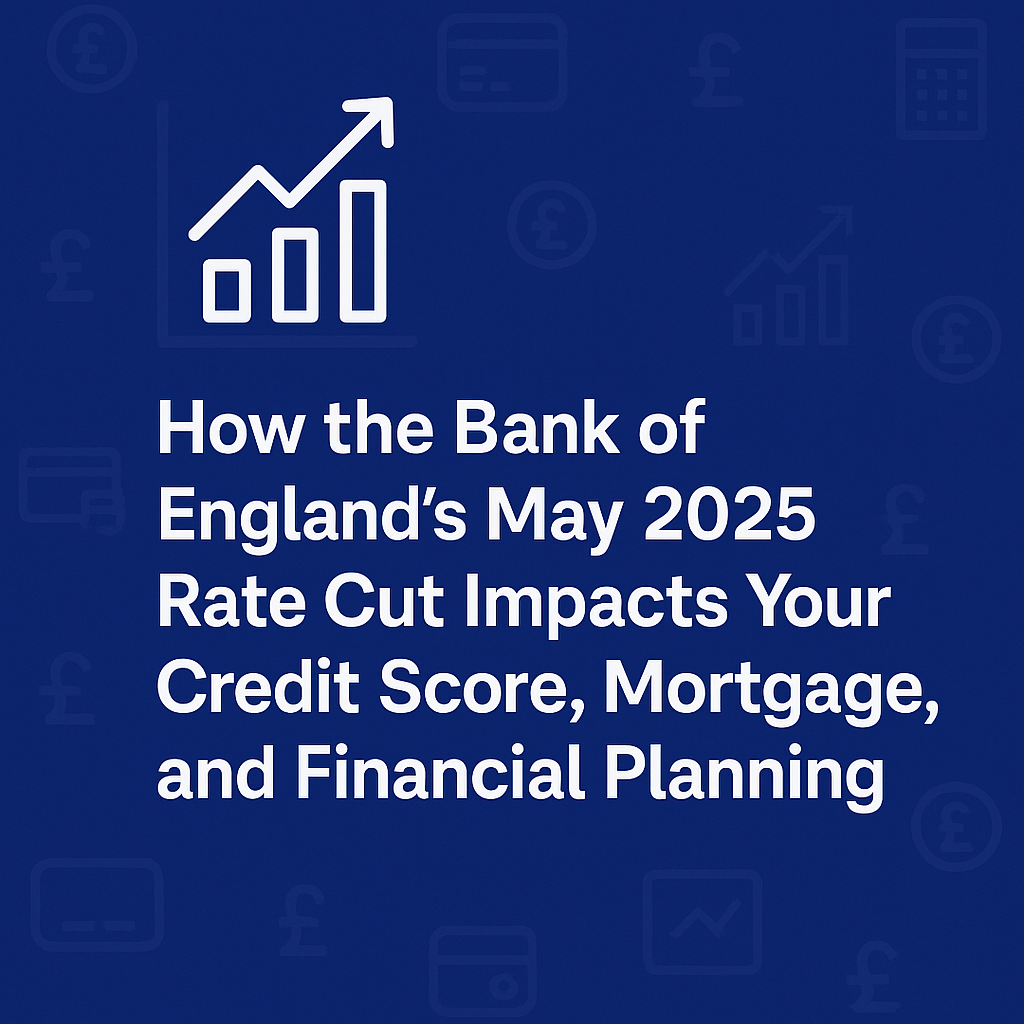On May 8, 2025, the Bank of England cut its base interest rate from 4.5% to 4.25%, citing cooling inflation and efforts to stimulate a sluggish economy. This marks the fourth rate reduction since August 2024 and reflects broader efforts to stabilise the UK economy amid rising global uncertainty.
But what does this really mean for you—especially when it comes to your credit score, mortgage options, and long-term financial plans? Let’s break it down.
What's Included?
1. What It Means for Your Credit Score
A Better Environment for Managing Debt
Lower interest rates often lead to cheaper borrowing. This means credit cards, personal loans, and overdrafts may become more affordable. If used wisely, this can be a good opportunity to manage existing debts or even consolidate multiple debts into one more manageable payment plan.
Reducing your credit utilisation (the amount of credit you use relative to your limits) is one of the fastest ways to improve your credit score. With interest payments slightly lower, you might find it easier to pay down balances, which can give your credit score a healthy boost.
Potential Pitfalls
Be cautious: lower borrowing costs can tempt some into overspending. Carrying higher balances can increase your credit utilisation ratio, negatively affecting your score. Maintaining discipline in repayments is key.
2. How Your Mortgage May Be Affected
Tracker and Variable Rate Mortgages
If you’re on a tracker mortgage, your monthly payments could decrease immediately following the Bank of England’s decision. Standard Variable Rate (SVR) mortgage holders may also benefit—though it depends on your lender.
Fixed Rate Mortgages
If you’re locked into a fixed rate, you won’t feel the benefit just yet. However, if your deal is due to expire soon, this is an ideal time to explore remortgaging. Lenders are beginning to lower fixed-rate deals in anticipation of a looser monetary policy.
Remortgaging Made Easier
In addition to falling rates, the Financial Conduct Authority (FCA) is proposing changes to simplify the remortgaging process. This could make switching lenders or products much easier, especially for those with fluctuating incomes or non-traditional employment.
3. Rethinking Your Financial Strategy
Rebalancing Between Saving and Borrowing
One downside to falling interest rates is the return on savings accounts. If you rely on savings interest for income, it may be time to shop around for better rates or explore alternative savings vehicles like ISAs or bonds.
That said, borrowing becomes more attractive. If you’ve been delaying investments—like home improvements or starting a business—this could be a better time to access funds at lower cost.
Review Your Budget and Goals
Now’s a great time to review your financial goals. Lower rates present an opportunity to pay down high-interest debt faster, invest in property, or simply rebalance your spending and saving strategy to reflect the new economic environment.
Final Thoughts
The Bank of England’s May 2025 rate cut is a significant shift with wide-reaching implications for your financial life. From managing debt and credit scores to making smarter mortgage and savings decisions, this is a moment to take action—not just observe.
Use this time to assess where you stand financially. If you’re unsure where to start, checking your credit report is a good first step. Understand your current financial position so you can take full advantage of what the changing market offers.



